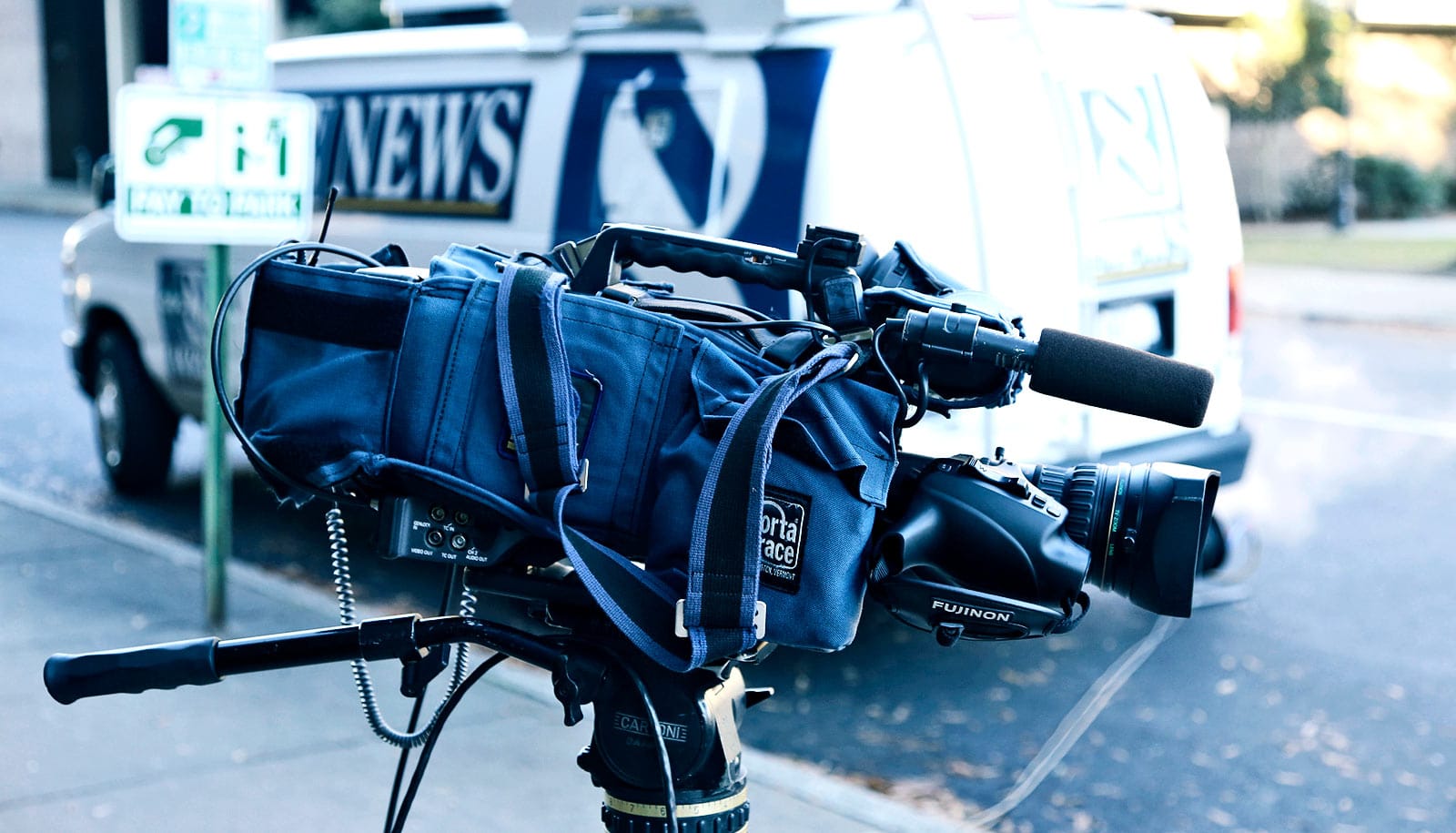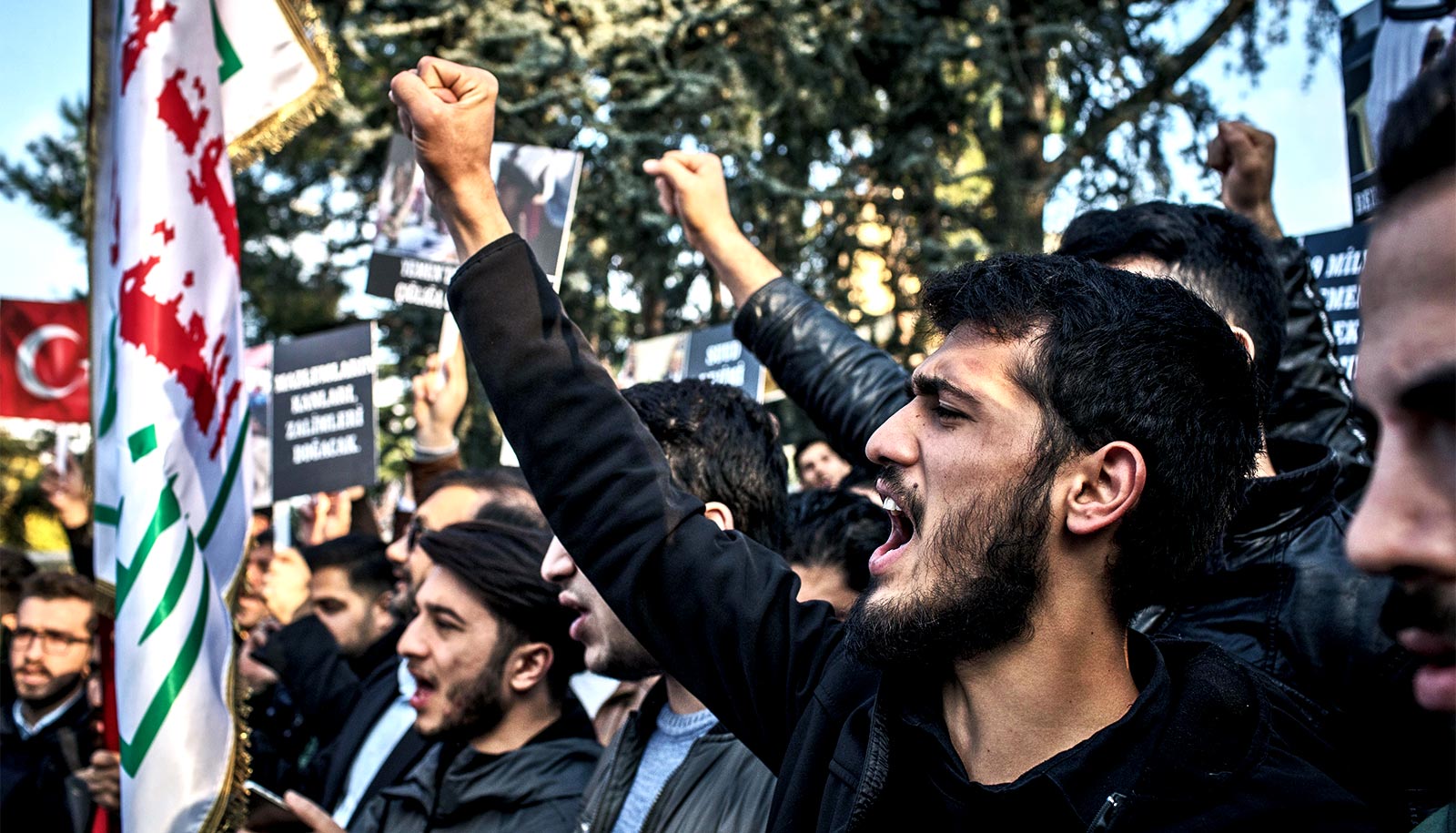Almost half of the American public believes that soldiers who have killed innocent people should not face prison if they are fighting for a just cause, according to new research.
For a new study, researchers examined Americans’ attitudes toward the ethical and legal responsibilities of soldiers in an armed conflict between two hypothetical countries. The findings show that Americans believe that soldiers who fight for the just side of conflict—in this case, defending against an aggressor who invaded their country—should have more leeway than soldiers who fought on an unjust side—that is, the side who carried out the act of aggression.
“I had previously thought that Americans were excessively forgiving only of the US military because the US military is our military,” says Scott Sagan, professor of political science and a senior fellow at the Center for International Security and Cooperation at Stanford University and coauthor of the paper in Ethics & International Affairs.
“But what this new survey suggests is the American public gives moral license to anybody that they think is fighting on a just side, which helps explain the strength of support for the recent pardoning of US soldiers convicted of war crimes.”
‘Eastland’ and ‘Westria’
To study how Americans perceive soldiers actions’ during war, Sagan and coauthor Benjamin Valentino of Dartmouth College, asked a representative sample of 750 American adults to read one of five hypothetical news articles about a conflict between two imaginary countries, “Eastland” and “Westria.”
The researchers told participants to “imagine how you would feel about these events if they were happening in the real world today.”
In the first hypothetical scenario, Eastland invaded Westria without provocation, occupied 100 square miles of Westria territory and the country’s two largest oil fields and killed 500 Westrian soldiers during an assault on a Westrian military base, considered as an unjust conflict because it was an unprovoked act of aggression.
In the second scenario, Eastland performed a counterattack in response to a Westrian invasion of its country, including an identical assault on a Westrian military base that left 500 Westrian troops dead, considered an example of a just conflict as it was a retaliatory act of self-defense, which under the Charter of the United Nations is a justifiable reason to engage in conflict, Sagan says.
The third scenario described Eastland’s troops as “unwilling conscripts” rather than an all-volunteer force. The scenario included remarks from an “independent military analyst and expert” who said that Eastlandic soldiers “don’t really believe in what they are fighting for. But all indications are that they will fight hard and do whatever is asked of them.”
The final scenarios paralleled the first two conditions—volunteer soldiers fighting a just or unjust cause—but included the report of a war crime.
Participants read that “independent reporters on the scene say that after capturing the base, Eastlandic soldiers systematically executed unarmed civilians, mostly the wives and children of Westrian soldiers, leaving their bodies in an open ditch.”
After reading one of these five scenarios, participants then answered questions about their attitudes toward the conflict, including questions about the legal responsibility of the soldiers and their leaders.
Unjust and just wars
When soldiers fight in an unjust war, Sagan and Valentino found that Americans judge soldiers who participated in these fights as less ethical than soldiers in just wars, even when their military conduct was identical.
Almost three times as many—62.8%—concluded that “Eastlandic soldiers who carried out the attack against the Westrian military base acted ethically” when the strike was portrayed as part of a just war of self-defense when compared with the number of people—22%—who believed the soldiers acted ethically when the invasion was described as part of an unjust war of aggression.
A large proportion of Americans surveyed also supported harsh punishments for soldiers who participated in unjust wars.
The researchers also asked participants about their support for two forms of legal punishment: imprisonment and execution.
The data showed 56.9% of participants favored prison terms for Eastland’s soldiers simply for their role in an unjust war and 40.6% favored execution. In the scenario where Eastland’s troops committed a war crime, 73.1% favored imprisonment and 49.6% favored execution, the researchers report.
Of the participants who read the scenario that described Eastland’s soldiers as unenthusiastic conscripts who did not believe in what they were fighting for, 21.8% supported executing them for their participation in an unjust war.
“Perhaps these subjects felt that Eastland’s soldiers had a duty to refuse to participate in the war, and instead should have faced the domestic consequences of refusing to fight,” the authors write.
In the scenarios describing an unjust war, participants were slightly more inclined to punish leaders than soldiers as well.
Justifying war crimes
Further, many of the Americans in the survey were willing to extend the moral license of a just cause. Half of respondents were willing to allow the massacre of innocent women and children to go unpunished when they believed the act was committed by soldiers fighting for a just cause.
“Most Americans, it seems, elevate just cause above virtually all other considerations in assessing the morality of leaders’ or soldiers’ behavior in war,” the authors write.
Similar to the “rally around the flag” effect—a concept in political science to explain an increase in public support for war after conflict has begun—the researchers found evidence of a “rally around the cause” effect: Americans will overlook soldiers’ conduct as long as their cause is perceived as just.
The results “very disturbing,” Sagan says.
“Soldiers and leaders are influenced by public opinion. Which will either be a constraint on them or a goad on them, and unfortunately our study suggests that the United States public will not be a constraint. It will be a goad.
“Public opinion will encourage more vengeful actions and discourage punishment of soldiers who commit war crimes. That’s dangerous. We need a professional military that’s disciplined in combat and willing to punish soldiers who violate the Geneva Conventions, even if much of the public seems willing to look the other way.”
Source: Stanford University



